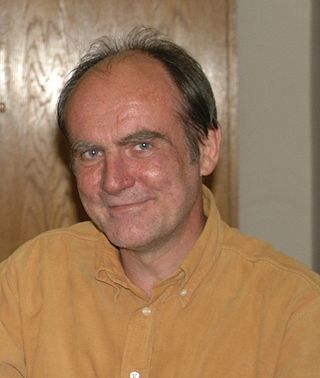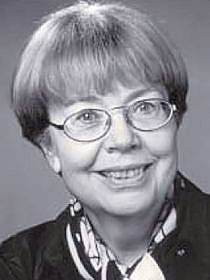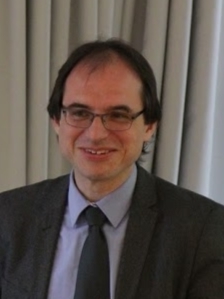Related Research Articles

The Tocharianlanguages, also known as Arśi-Kuči, Agnean-Kuchean or Kuchean-Agnean, are an extinct branch of the Indo-European language family spoken by inhabitants of the Tarim Basin, the Tocharians. The languages are known from manuscripts dating from the 5th to the 8th century AD, which were found in oasis cities on the northern edge of the Tarim Basin and the Lop Desert. The discovery of these languages in the early 20th century contradicted the formerly prevalent idea of an east–west division of the Indo-European language family as centum and satem languages, and prompted reinvigorated study of the Indo-European family. Scholars studying these manuscripts in the early 20th century identified their authors with the Tokharoi, a name used in ancient sources for people of Bactria (Tokharistan). Although this identification is now believed to be mistaken, "Tocharian" remains the usual term for these languages.

Proto-Indo-European (PIE) is the reconstructed common ancestor of the Indo-European language family. No direct record of Proto-Indo-European exists; its proposed features have been derived by linguistic reconstruction from documented Indo-European languages.
Radoslav Katičić was a Croatian linguist, classical philologist, Indo-Europeanist, Slavist and Indologist, one of the most prominent Croatian scholars in the humanities.

Kuchean was a Western member of Tocharian branch of Indo-European languages, extinct from ninth century. Once spoken in the Tarim Basin in Central Asia. Tocharian B shows an internal chronological development; three linguistic stages have been detected. The oldest stage is attested only in Kucha. There are also the middle ('classicalʼ), and the late stage.
Jay Harold Jasanoff is an American linguist and Indo-Europeanist, best known for his h2e-conjugation theory of the Proto-Indo-European verbal system. He teaches Indo-European linguistics and historical linguistics at Harvard University.

Elisebeth Leinfellner was professor in linguistics at the University of Vienna, Department of Linguistics. She moved to the United States in 1967, and taught at Doane College in Crete, Nebraska, and at the University of Nebraska-Lincoln. She is notable for her contributions to linguistics and philosophy. She received the Austrian Grand Decoration of Honour for services to the province of Lower Austria for Science and Art. She co-founded the Austrian Ludwig Wittgenstein Society and International Wittgenstein Symposium.

Elżbieta Magdalena Wąsik is a Polish linguist specializing in general linguistics and semiotics of communication, employed as professor extraordinarius at Adam Mickiewicz University in Poznań, Poland.
Csaba Földes is a linguist. His research is focused on contemporary German language and German as a foreign language. He is currently full professor (W3) and holds the chair of German Linguistics at the University of Erfurt in Germany. Földes is a member of the Hungarian Academy of Sciences and Past President of the Central European Association for German Studies.

Jost Gippert is a German linguist, Caucasiologist, author, and the professor for Comparative Linguistics at the Institute of Empirical Linguistics at the Goethe University of Frankfurt.
Hendrik Wilhelm "Henk" Bodewitz was a Dutch Sanskrit scholar. He was a professor at the Universities of Utrecht and later Leiden between 1976 and 2002.

Artemis Alexiadou is a Greek linguist active in syntax research working in Germany. She is professor of English linguistics at the Humboldt University of Berlin.

Johanna Narten, was a German Indo-Europeanist and Indo-Iranian linguist who discovered the reconstructed morphological category in Proto-Indo-European now known as the Narten present. She was Professor of Indo-European and Indo-Iranian Linguistics at Friedrich-Alexander-Universität Erlangen-Nürnberg and a member of the Bayerische Akademie der Wissenschaften.
Nikolaus P. Himmelmann is a German linguist. His interests include linguistic typology, grammar, prosody, and linguistic documentation.
Kerstin Susanne Jobst is a German historian and professor. Since 2012 she has taught at the Institute for East European History at the University of Vienna.
Soonja Choi (Korean: 최순자) is an Austria-based linguist from South Korea. She specializes in language acquisition, semantics, and the linguistics of Korean.
Maj-Britt Mosegaard Hansen is a linguist and Professor of French Language and Linguistics at the University of Manchester, UK.

Stefan Michael Newerkla is an Austrian linguist, Slavist and philologist. He has taught as Professor of West Slavic Linguistics at the University of Vienna since 2004 and has been Full Member (Fellow) of the Austrian Academy of Sciences since 2018.
Johanna Laakso is a Finnish linguist and Finno-Ugrist based at the University of Vienna.
Susi Wurmbrand is an Austrian linguist specializing in syntax.
Tania Kuteva is a historical linguist specializing in grammaticalization, language contact and discourse grammar.
References
- 1 2 3 4 5 "Neue Professuren im März 2012: Univ.-Prof. Mag. Dr. Melanie Malzahn" . Retrieved 15 October 2022.
- 1 2 3 "Academia Europaea: Melanie Malzahn CV" . Retrieved 15 October 2022.
- ↑ "ÖAW: Univ.-Prof. Mag. Dr. Melanie Malzahn" . Retrieved 15 October 2022.
- 1 2 "Academia Europaea: Melanie Malzahn" . Retrieved 15 October 2022.
- ↑ "Gelehrtenporträt Prof. Dr. Melanie Malzahn (YouTube)" . Retrieved 15 October 2022.
- ↑ Peyrot, Michaël 2013. Review of Melanie Malzahn (2010), The Tocharian Verbal System. Tocharian and Indo-European Studies 14, 213-259.